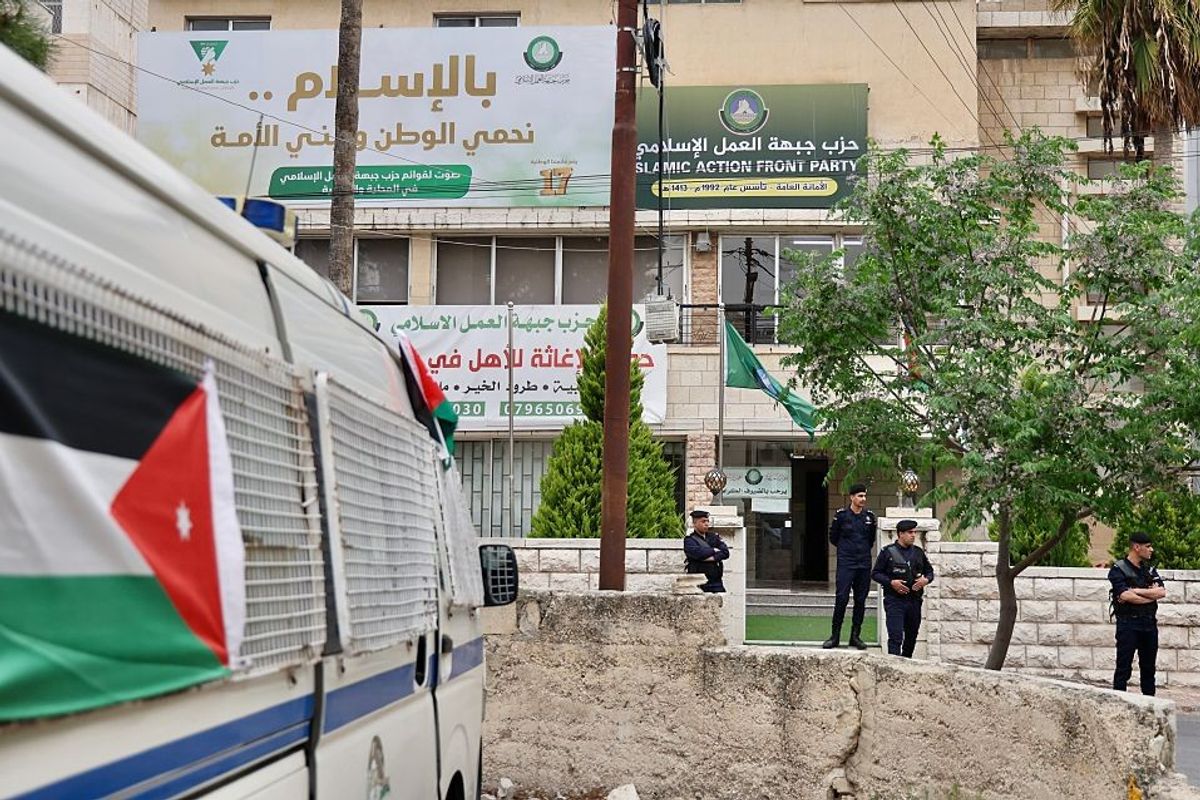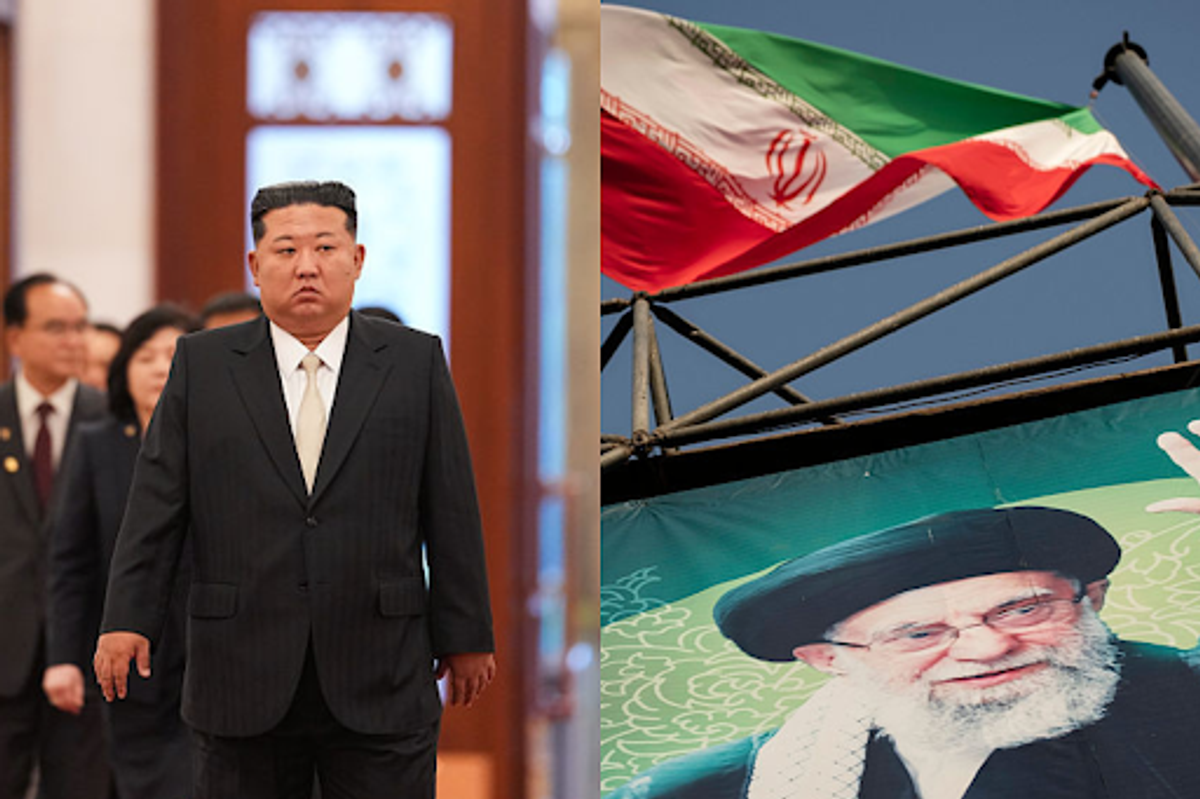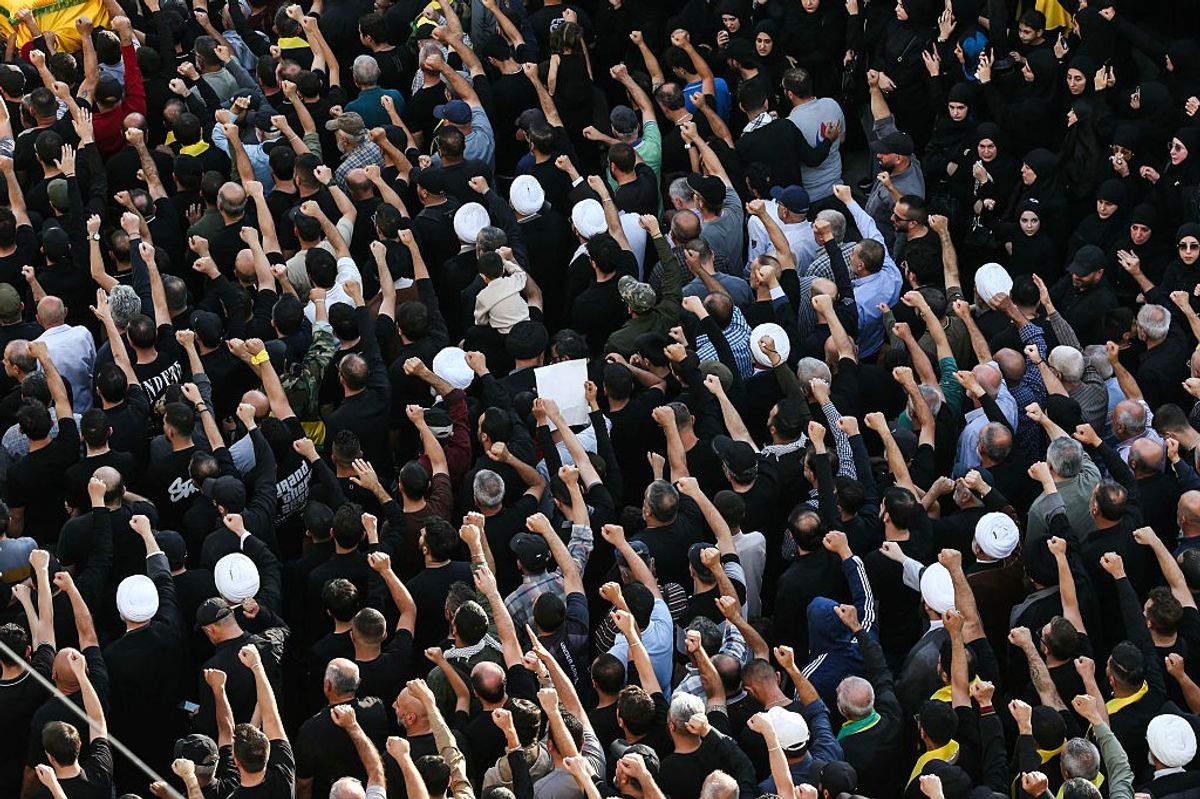DEEP DIVE — More than a year after Israeli leaders unleashed a punishing war to destroy Hamas, the end for Hamas leader Yahya Sinwar came in what Israeli officials called “an unplanned operation,” a firefight that military commanders had no idea involved their number one target. As one U.S. official told CNN, “The IDF [Israel Defense Forces] is more surprised by this than we are.”
The Israeli military confirmed on Thursday that Sinwar, widely believed to have been the architect of the raids and massacre of 1,200 people in southern Israel last October, had been “eliminated” during an exchange between Israeli and Hamas forces in the southern Gaza Strip. The IDF said it had used DNA testing and dental records in Israel to confirm Sinwar’s identity – a reminder that the Hamas leader had been held in Israeli jails before a 2011 prisoner exchange.
"Today we have settled the score,” Israeli Prime Minister Benjamin Netanyahu said in a recorded video statement. “Today evil has been dealt a blow.”
Israeli Foreign Minister Israel Katz called the killing “a great military and moral achievement for Israel." Sinwar, he said, was a "mass murderer who was responsible for the massacre and atrocities of October 7."
Cipher Brief experts said the announcement was among the most important developments in the year-old war.
“The deaths of Hamas leader Sinwar and Hezbollah leader [Hassan] Nasrallah for Israel are equivalent to the deaths of [Osama] bin Laden and [Ayman] al-Zawahiri to the United States,” Paula Doyle, a former Associate Deputy Director for Operations at the CIA, told The Cipher Brief, referring to the former leaders of Al-Qaeda. She added a cautionary note: “The deaths of Sinwar and Nasrallah will not mark the end of Hamas or Hezbollah, however, any more than the deaths of bin Laden and Zawahiri marked the end of al-Qaeda or the oxygen it feeds to its affiliates, the Taliban, and ISIS-Khorasan.”
While Israel has pursued Hamas leaders at many levels and in many places beyond Gaza – perhaps most notably, the group’s political leader Ismail Haniyeh was killed in Tehran in July – Sinwar was Israel’s prime target. Beyond his role in the October 7 attacks, he had been the group’s top military commander and was said to have been leading operations throughout the year-long war with Israel.
“This is probably one of the most significant days in this war,” said Cipher Brief expert Gary Grappo, a former U.S. ambassador to Oman. “This was the key figure, and it’s unquestionably going to be a major blow to Hamas. It's not going to kill Hamas, but it's going to be a devastating blow, more on the morale than the military side.”
In the wake of Sinwar’s death, huge questions loom for both sides in the war. Hamas must decide on a figure to replace Sinwar, at a time when the organization is a shadow of what it was a year ago. Israel, meanwhile, must decide whether to use the moment to pursue a ceasefire and the return of the hostages in Gaza – or further press its advantage in military might and momentum.
What will Israel do?
In the immediate aftermath of the October 7 attacks, Israel laid out a pair of war aims – the destruction of Hamas, and the safe return of the hostages. Of the first goal, Netanyahu said, “We will kill the Hamas leadership…we must not end the war before then.”
In Washington and other global capitals, the news of Sinwar’s death brought hope that with so many top Hamas leaders eliminated, Israel might now declare that part of its mission accomplished.
“The real question is, what is Israel going to do at this moment?” Amb. Grappo said. “They may decide to press the case, which they most certainly can. On the other hand, Netanyahu could choose this moment to present a proposal to Hamas to release the hostages, lay down their arms, and say, We'll declare the war over and go from there. That kind of proposal, with the help of the international community, could potentially work.”
In the immediate aftermath of Sinwar’s death, Netanyahu gave conflicting messages. On the one hand, the Israeli leader called the killing of Sinwar a success that marked “the beginning of the end” for the conflict in Gaza. But in the same statement, Netanyahu said that “our task has still not been completed,” and he vowed to “stand firm on our ground and to continue to fight.”
The focus now will be on that other war mission – the return of the remaining Hamas captives.
101 hostages are still believed held in Gaza, and late Thursday their beleaguered families – many of whom have held regular vigils and protests against the Israeli government – said that Sinwar’s death offered a moment for peacemaking.
The Hostage Families Forum issued a statement saying that “along with the appreciation for the significant achievement [of Sinwar’s killing], the families of the hostages express grave concern for the fate of the 101 hostages who are still being held captive by Hamas in Gaza and demand that [the government] leverage the military achievement to secure an immediate deal to bring about their return.”
A similar call came from the White House, where President Joe Biden said that he would be “speaking soon” to Netanyahu, to congratulate him but also to “discuss the pathway for bringing the hostages home to their families, and for ending this war once and for all, which has caused so much devastation to innocent people."
That reaction to Thursday’s news – that Sinwar’s death would open the door to negotiation – was heard from voices as disparate as Senate Majority Leader Chuck Schumer (“I pray that [Sinwar’s] elimination from the scene will clear a path to urgently and immediately bring home all the hostages – including the 7 Americans – and negotiate an end to hostilities”) and Italy’s Foreign Minister Antonio Tajani (“I hope that the disappearance of the Hamas leader will lead to a ceasefire in Gaza.")
But while Israeli officials addressed the hostage families Thursday, their comments included no mention of negotiations, and suggested no letup – for now – in the fighting.
"To the dear hostage families, I say: this is an important moment in the war,” Netanyahu said. “We will continue full force until all your loved ones, our loved ones, are home."
Defense Minister Yoav Gallant posted a video on X, saying that “[Sinwar’s] elimination is a clear message to the families of the fallen and abducted - we are doing everything and will continue to do it. Residents of Gaza, the end of the man who brought a disaster upon you has arrived. Come out with the kidnapped, free them and surrender."
For the hostage families, the Biden Administration and others, Netanyahu’s pledge to “continue full force” may not be the response they are looking for. And no one believes that ordinary “residents of Gaza” are in a position to “come out with the kidnapped,” as Gallant suggested.
Hamas after Sinwar
Experts said Thursday that Sinwar’s death is a blow to both the Hamas leadership and its operational capacity as well. Many noted that the list of remaining leaders of the Hamas is thin, and that the organization will now need to regroup in an atmosphere of battered resources and morale.
“This is now obviously a period of even greater disarray among Hamas, without their leading figure,” Amb. Grappo said. “He was more than just a very capable military commander from their perspective, but also a figure that was responsible for upholding the morale of the remaining troops within Hamas. And without him, this is going to be a real morale blow to Hamas.”
After more than a year of war, Hamas is believed to still have between 7,000 and 11,000 fighters at its disposal. Less clear is how badly Israel has degraded the group’s arsenal of weapons. The one bit of good news for Hamas is that many reports suggest that the war has driven high numbers of recruits to the organization – young Gazans angered by the Israeli war and its high toll of civilian dead and wounded.
Doyle noted that both Hamas and Hezbollah have now lost top leaders, and that the two organizations “will regroup, pick new leaders, consult with Tehran, and announce whether they remain committed to terrorizing and war or wish to negotiate for a ceasefire.” On the latter point, she added, “Tehran must choose and act wisely. They must consider that the innocent people of Lebanon are tired of war; tired of poverty; tired of the outcome of Iranian interventions. The innocent people of Gaza are exhausted; starving; dying. Tehran and its Axis Armies have much blood on their hands, and nothing to show for it.”
“We're really going to have to see what Hamas does,” Amb. Grappo said. “Who's going to assume the leadership of Hamas? And that's a difficult question to answer because the Israelis have taken out quite a few of them.”
Earlier this year, in the wake of one of many collapses in ceasefire negotiations, The Cipher Brief published a piece under the heading, “Can the Gaza war end with Hamas leaders at large and Netanyahu in power?”
Multiple experts suggested then (this was in March) that Netanyahu had every incentive to prosecute the war to the hilt – given the need to reverse a crushingly low approval rating, and a far-right contingent in his government that would desert him if he did anything less. The piece also noted that Sinwar clearly knew his chances of survival would be slim to none, were he to emerge from hiding and agree to peace.
“Netanyahu has said there will be no ceasefire until Hamas has been destroyed militarily,” Mick Mulroy, a former undersecretary of defense for the Middle East, said then. “That will not happen until Sinwar is killed or captured, his senior leadership is as well, Hamas weapons – especially rockets – are destroyed and the tunnels eliminated.”
As The Cipher Brief’s contributor Peter Green put it, “politically, Netanyahu needs a ‘win’ of some kind in the Gaza war. It’s a high bar given the goals he has laid out.”
Now Netanyahu has a “win,” and it’s a big one, by his own admission. The core question for the Gaza war will be how the Israeli leader uses the win, in the days ahead.
Read more expert-driven national security insights, perspective and analysis in The Cipher Brief.














